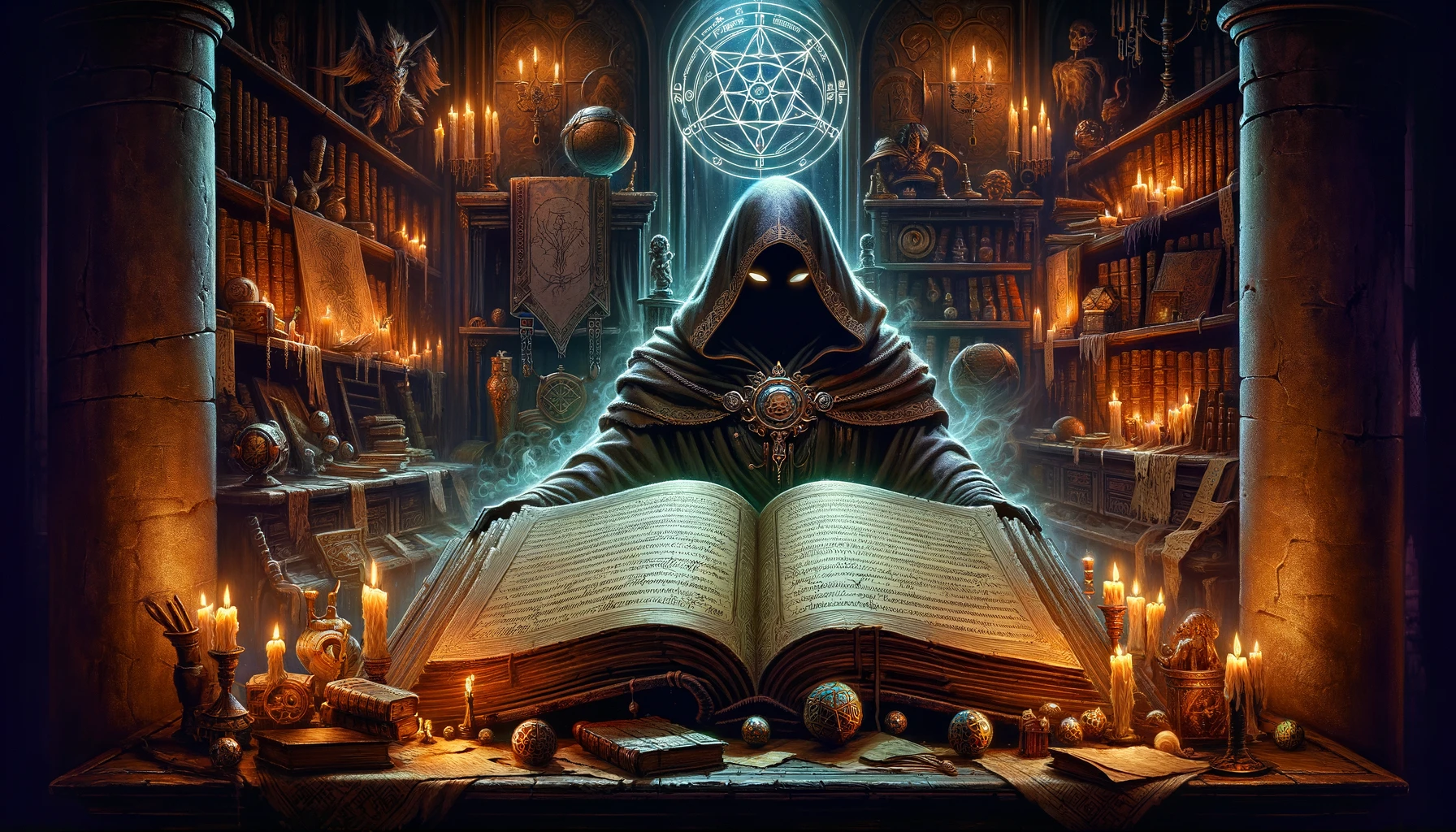Guide on How To Dungeon Master
The following guide on ‘how to dungeon master’ is most useful when read before starting a campaign. Though I believe most of these rules will be universally useful. This guide is meant as foundational DM’ing knowledge that will (hopefully) steer you towards the direction of creating the best entertainment. And it can be utilized with every campaign you create.
How To Dungeon Master Rule 1: Know the rules
Not a very exciting rule, but you have to have a firm grasp of the rules, since you are the referee/arbiter. You’ll get things wrong, you’ll occasionally have to look things up, that’s normal. But you don’t want to pause every couple of minutes because you cannot make a reasonable ruling. Read the books, learn the rules.
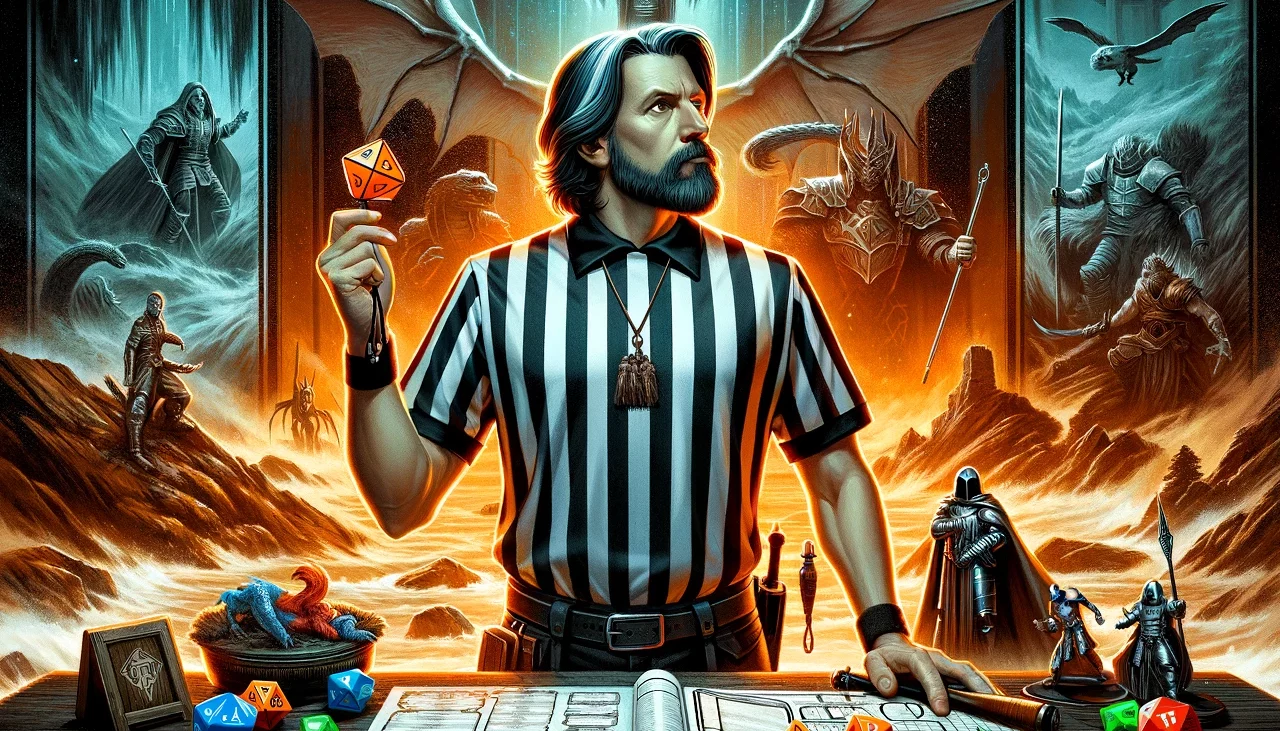
Once you have a fair bit of understanding of the rules, you can make rulings on the spot, even when the details are uncertain. When you are familiar with saving throws, checks, advantage/disadvantage, skills, spells and attacks, you can quickly rule on the spot if necessary. Some will vehemently disagree with this, but you can use the general structure of D&D 5e rules and decide what should happen on the spot.
The spirit of the game
“One player wants to playfully punch another player on the shoulder, and the other player won’t allow it”. Should this be an attack roll? Would make sense, it being a melee attack. Contested skill check? Could be, since the attacking player is not fully committing to the attack and therefore controlling it would be a feat of skill. The fact that you in theory could make the argument for either case (whether you agree with them or not), means you know the rules well enough to make a ruling on the spot.
Again: some will die on this hill and claim that there is absolutely only one way to play the game, and you should halt everything in order to get this absolutely right. I personally don’t want to play with these people, I want to make a ruling that adheres to the spirit of the game and that the players feel is fair. I want everyone to have fun and keep the game moving.
How To Dungeon Master Rule 2: Either start with an existing campaign setting…
The D&D 5e books are written with the ‘standard’ campaign setting in mind, namely the land of Faerûn of the Forgotten Realms. Sticking to the book forces you and the players to speak the same language, and this saves you a lot of work.
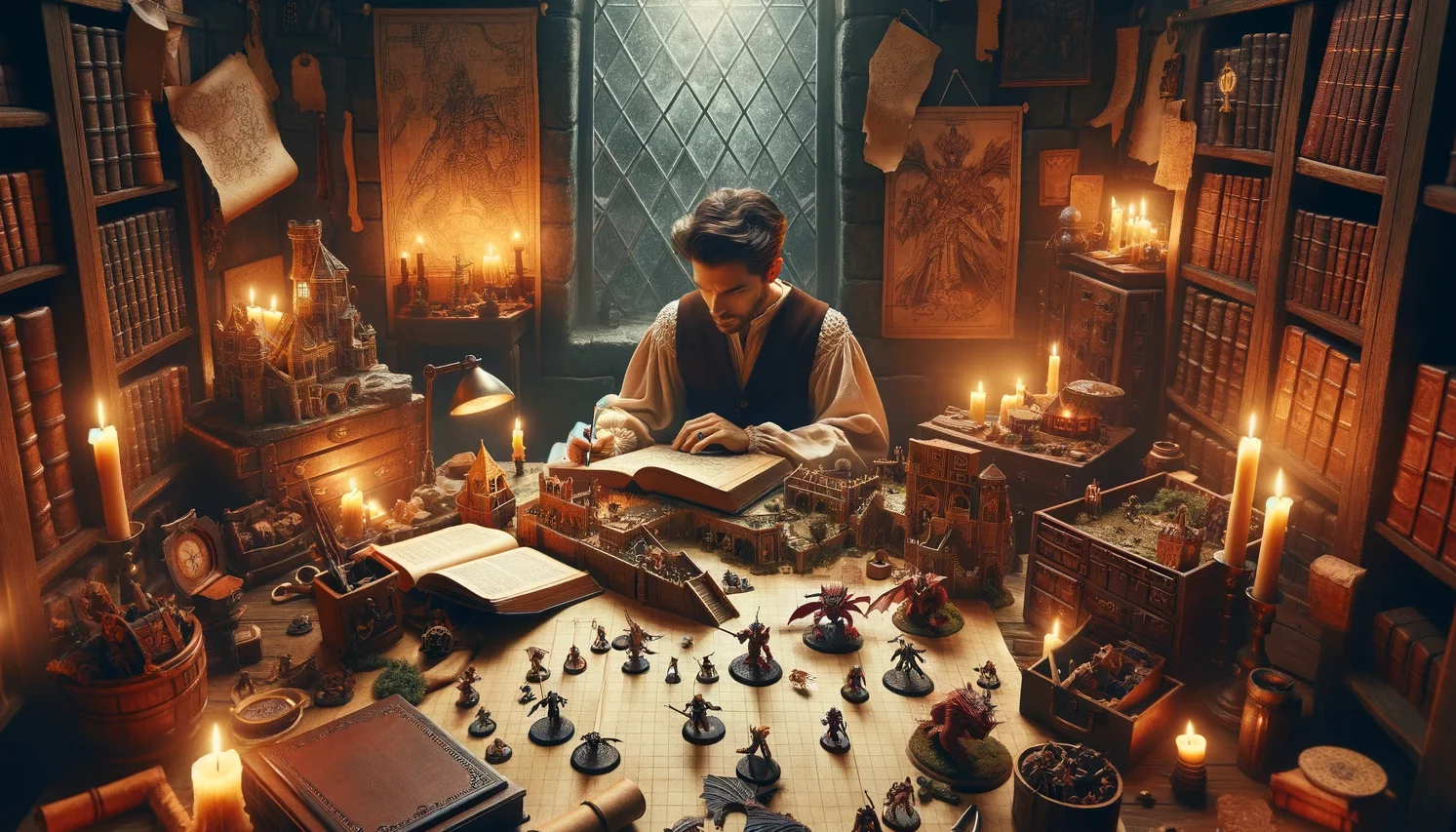
If you start by creating an entire world and altering everything (geography, races, world history), you’ll have to alter everything. This is an enormous undertaking and I would focus on playing the game right, creating good encounters, and learning to become a better DM in general.
But if you really want to worldbuild…
But not being able to create your own world or lore seems very limiting. It might be one of the core reasons that you became a DM in the first place. Same here. So if you really want to worldbuild, I suggest modifying what’s already there. I chose to use Faerûn as a foundation and then alter anything to my liking. You can use any readymade world and simply tweak it where needed. That way you can fall back on and even default to existing material.
Keep the following in mind: The ‘standard rules’ assume that gods exist in some capacity, that there is a plethora of races, that magic is everywhere, and more matters like that (this is explained in the DMG as well). Crowbarring all of that out of the game is a lot of ‘accounting for’ that you’ll have to do. You don’t want that, you’ll want to save all the headspace for running the game properly, role playing, creating imaginative encounters, et cetera. Having a high-fantasy world like the Forgotten Realms and having all of that world building one Google query away will help you immensely when you’re starting out. Whatever you do, try to stick to those general assumptions.
How To Dungeon Master Rule 3: … or begin small
If you really really really want to create your own world and if that is by far the biggest reason for you to be a Dungeon Master… well, you might not want to be a Dungeon Master. You might want to be a writer of your own stories. Players will trample over anything you hold sacred and laugh while doing so. If this bothers you, turn around now.
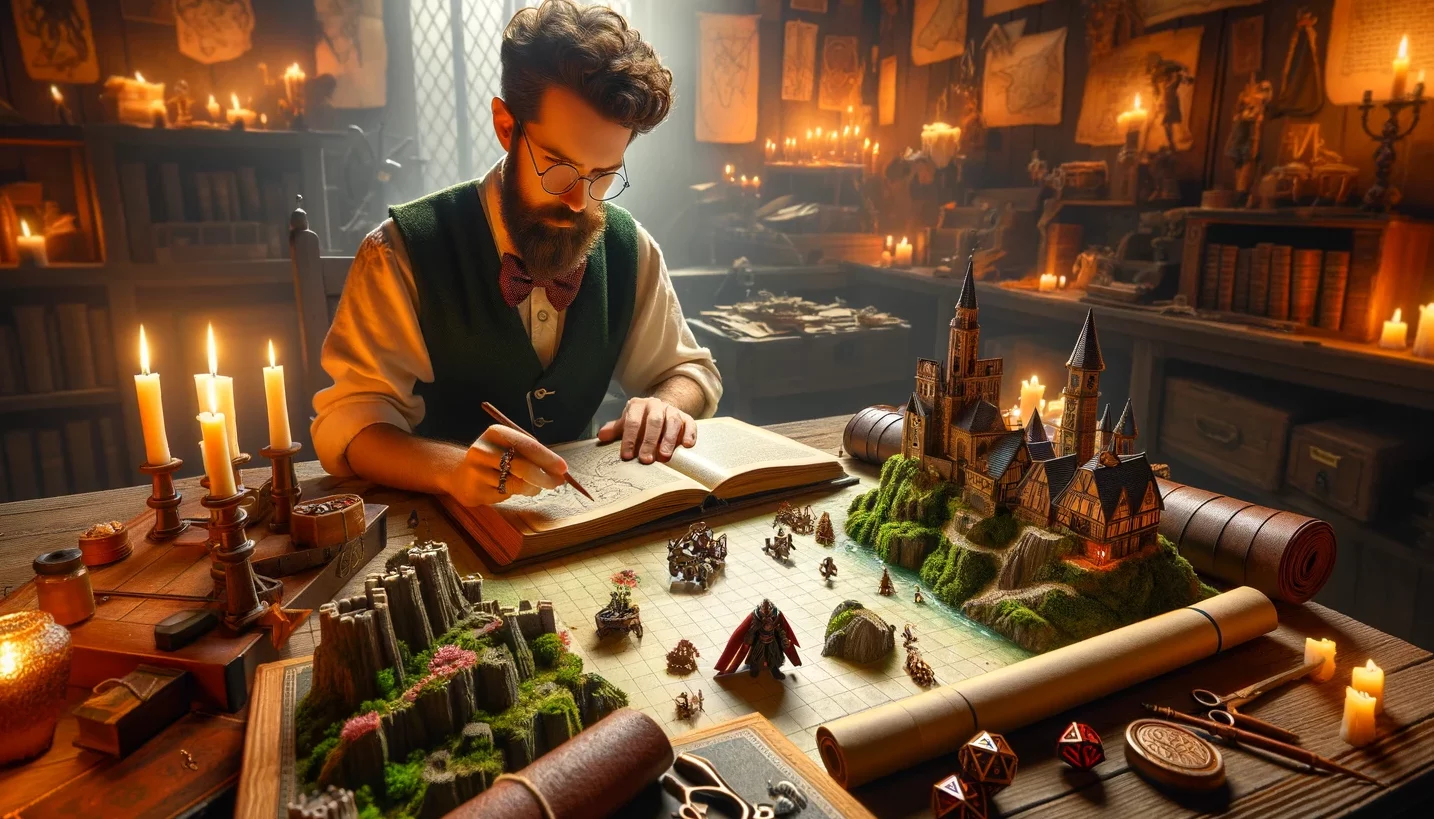
But if you’re absolutely certain that you love creating worlds and you don’t mind players defecating over all that is holy in your world, then at least start small. Start small means: yes, you can establish some grand campaign setting rules, like the races that are present, gods, and the environment. But if you want to create a complete and perfect setting before playing D&D, then forget it and turn around now. It won’t be perfect, you can’t do everything, and this will hinder your actual DM’ing. You’ll have to focus on the setting that the players are currently in, and their direct environment. Make sure the starting area feels complete and build from there.
How To Dungeon Master Rule 4: Create Player Characters with the players
You don’t have to be involved for the entire process of player character creation, but be involved. You’ve determined your setting, the ground rules, what is possible and what is impossible. If dwarves are a persecuted race in your world, you players need to know this before creating a character. Also, players may want to troll each other or make ‘joke characters’. And while the players will determine what the game will be like, you do have some control over the outer boundaries.
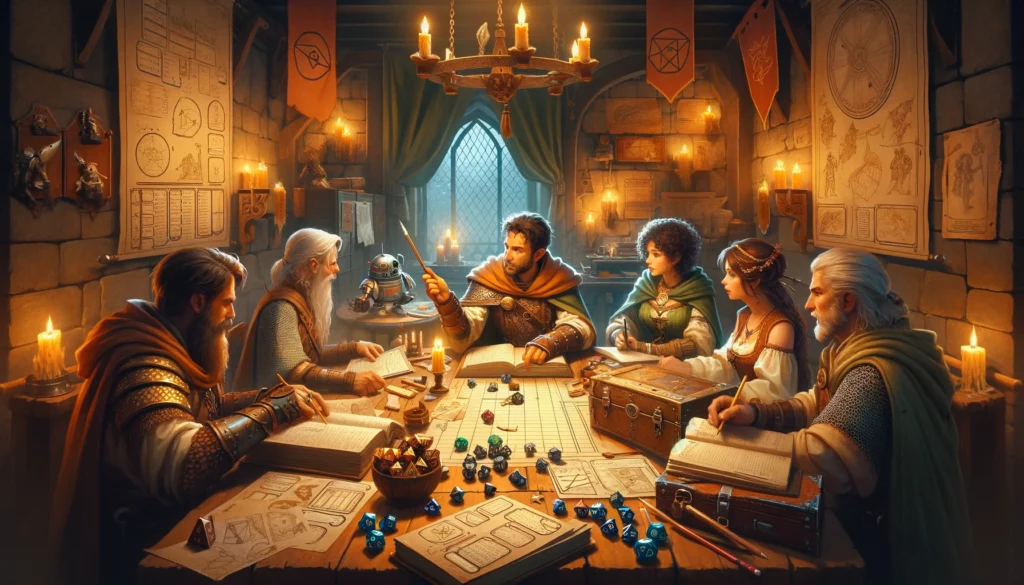
Some things you can absolute determine as a Dungeon Master:
- Joke characters or not: people can joke around in-game, but I personally don’t allow characters like ‘NeoGoku1337’ or ‘Epic Eric’ in my games. To each their own, but I just can’t vibe with that. At my table, the jokes come from the roleplaying and whatever the players can think of at the table, but it’s simply not baked into the world. You have to decide whether you open the door to this, because once this door is open, you cannot close it.
- How much the players can contest or sabotage each other. Or in other terms: will you allow players to be evil against one another? The common advice is: no. Once a player character betrays another player character, that’s it basically, campaign over (or at least, for one of those players). I’ve never had to rule on this, but my players know this is a no-go.
- How much murder-hobo’ing players can perform before the world slaps back. The term ‘murder-hobo’ refers to the instinct of players to simply kill and steal anything when it’s prohibiting their progress or when their sense of ‘exploratory desires’ take over. This is very dependent on how serious your game is. If you don’t mind incorporating silliness into the collaborative story, then the players will have more freedom without consequences. If you want to have at least a semi-serious world with at least semi-serious consequences, then players simply cannot smack the guards and get away with it, or call a lord names and expect to walk freely. You can establish this before starting the campaign and warn players that their actions will have serious consequences, depending on the situation.
How To Dungeon Master Rule 5: Create the start of the story
Don’t write out a story from beginning to end. That’s a collaboration between you and the players at the table. But you want to create the beginning of a story that your players can pick up.
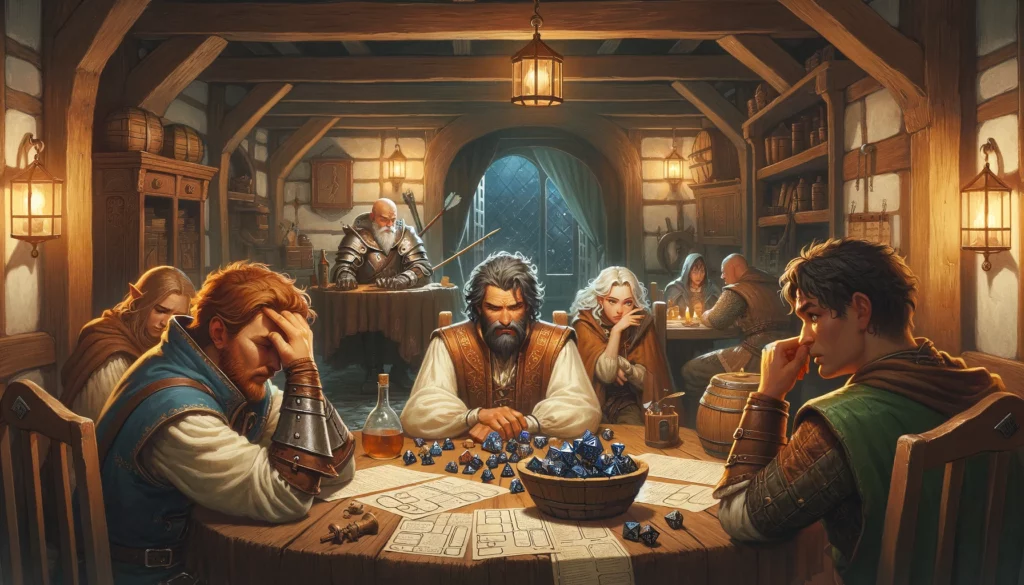
One of the most annoying things to witness is the awkward starting hurdle that’s present in so many D&D live plays, streams and podcasts when the players are new to D&D. A bunch of player characters are at an inn, sitting around, describing themselves nervously, attempting to roleplay without knowing what to do. If the players have experience, you can get away with a lot. But new players need more guidance, because D&D is really different from anything else they’ve ever done. So don’t just dump your players in a bar and have them create an introduction, create a strong beginning yourself.
Important questions to ask yourself
For one: why are the player characters together in the first place? Are they one party, and if so, what is their history? This is something you’ll want to establish before you begin the first session, since this is the foundation of the party. Instead of having players awkwardly trying to figure out who their characters are and what their connections are, get this out of the way and prepare everyone. I’ve never found it fun to see people trying to roleplay matters that are out of character for their characters, like finding out how well they know their in-game ‘friends’.
Create a reason for players to come together, regardless of their background. You don’t want players to look for reasons to form a party, even though this is still far too common in a lot of D&D live plays, streams and podcasts. Just create a situation that they all share and ‘force’ them to work together.
For example: for one campaign I had all my players arrested and sent off to a slaver’s camp. Before the campaign started, I told them that they were arrested and I asked them to provide me a reason for why their character might have been. They could even claim total innocence or say they were framed, and I would work with that input. But they knew that they started off being arrested. But you can also have all the players start in a town and that town is attacked by bandits and set on fire. Whatever happens: make the players share a similar fate, push them together and give them a reason to talk to one another.
How To Dungeon Master Rule 6: Incorporate player character backstories
Before starting your campaign, ask the players some questions about their characters and store all of that information. Do they have families, friends, co-workers, partners? Why are they who they are now? And how were all their loved ones brutally murdered? (If you don’t get it, ignore that last one.) There are many lists online of what you can ask your players.
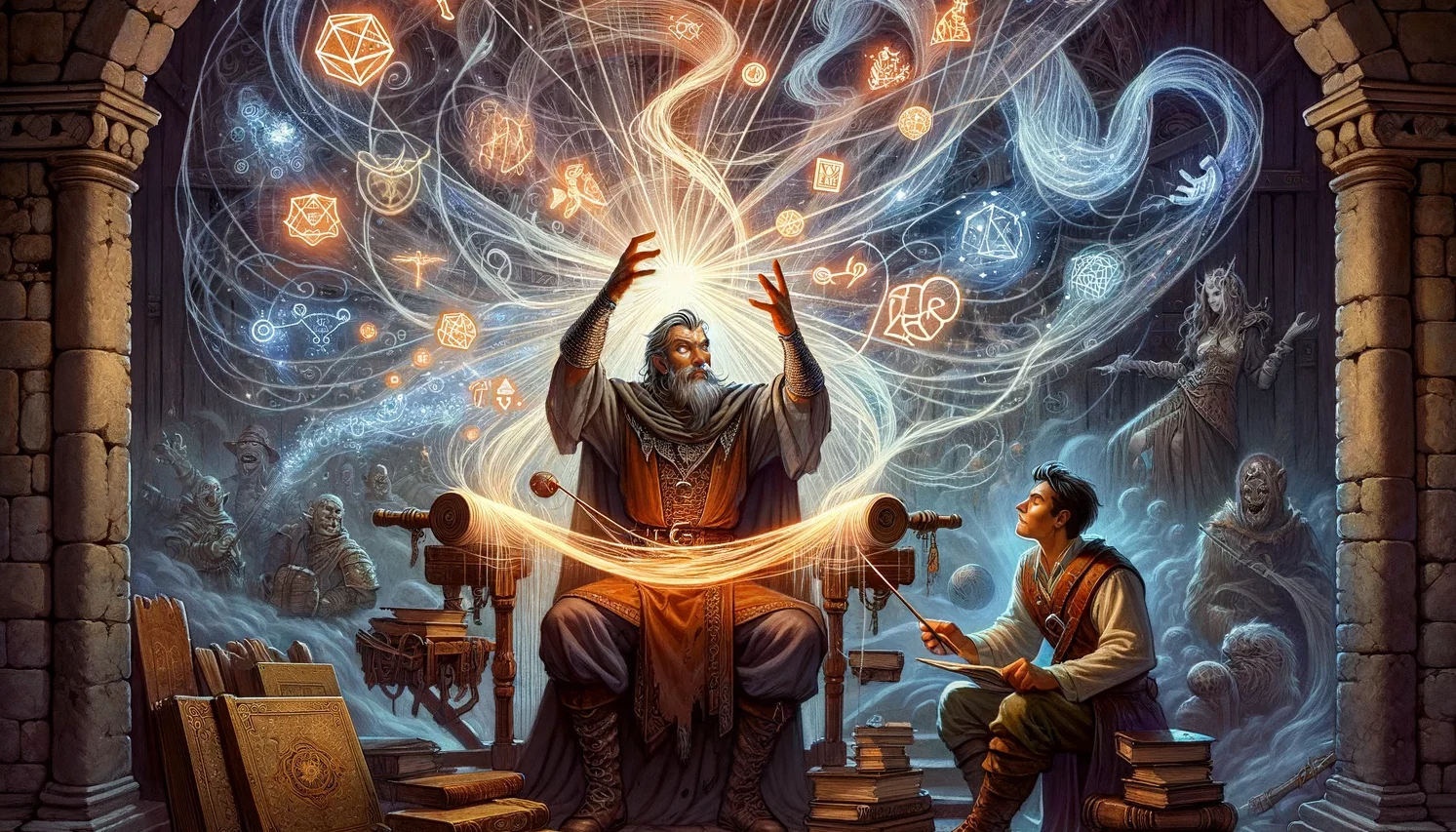
Once you have that information, work it into your campaign. Some evildoer did something evil to one of your players? Have some henchman refer to this villain. And perhaps another player’s family member died in the fire at the start of the campaign, and this henchman was commanded by the villain to cause this fire. Why this town? What would this villain’s end goal be? Now two players are hooked into the storyline, and you can keep feeding them crumbs.
You don’t have to combine storylines, you can keep them separate and create personal storylines as well. As long as they intertwine with the main storyline so that there is a reason for players to keep moving forward. You can create natural disasters all you want, but as long as they don’t hit the players where it hurts, they won’t really care. So always hit them where it hurts.
How To Dungeon Master Rule 7: You are there to ensure the players have fun
After all of this ‘boundary setting’ and ‘not allowing joke names’ and ‘hitting players where it hurts’ you might think that a DM is only there to limit the players. But the so-called limitations are there for a reason. If there are no rules and boundaries, anything can happen and therefore nothing has value. This all might sound strict (and it would probably surprise you how lenient I actually am at the table), but you want to build a sturdy fence around the playground so no one has to worry about running into traffic.
Once it’s clear that you won’t allow player characters to sexually assault each other or NPCs (I’ve only read tales on Reddit, but apparently sometimes this needs to be said), then you won’t have to worry about that issue any longer.
Boundaries = fun
My players are my friends and they are fantastic, I never have to worry about any of this nonsense. But I do set certain ‘world building boundaries’ with them ahead of a campaign. And I do that to align us all. We subscribe to the same concept, we sign a verbal contract that this campaign will be “a fun, light-hearted campaign with high-fantasy elements” or “a dark and gritty world set in a low-fantasy setting, with grim horror”. Make sure players know what they sign up for.
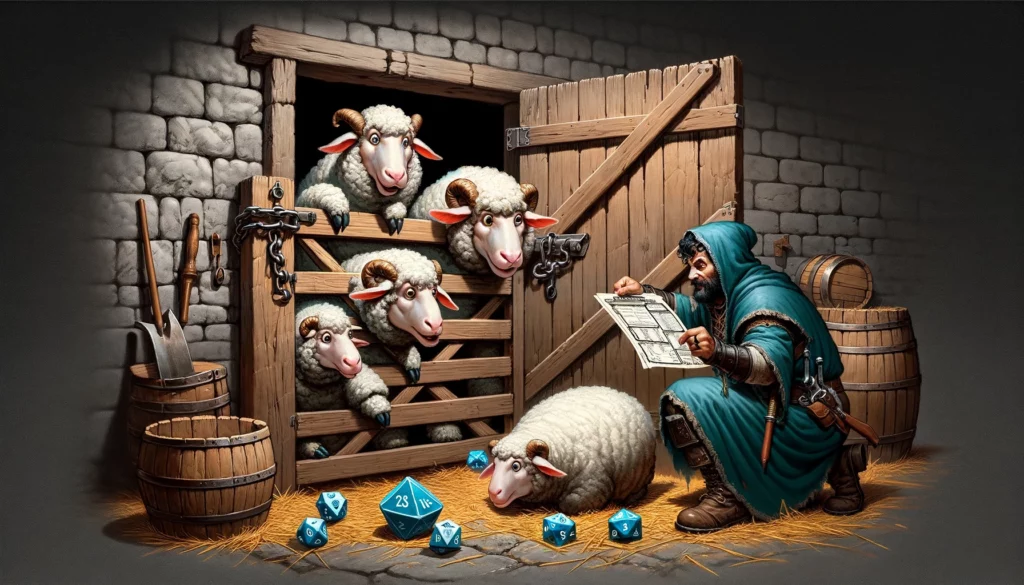
Because their fun is what it’s about. Yes, of course you should have fun as well. But to be honest: you will have to work, there’s no way around it. Being a good DM takes effort. You will have to prep, write, create encounters, know the rules, et cetera. Depending on how serious the setting is, you might have to prep very little or very much.
Extra effort, extra cool
And if you feel like going the extra mile to create great experiences, then there’s even more work, like creating all maps yourself, preparing the soundtrack, creating custom monsters that they cannot possibly know, creating practical props, decorating the room where you play D&D in, whatever it might be. “Nothing in this world that’s worth having comes easy.”
You don’t have to do any of this, especially when you’re starting out (which is why I advize to use an existing campaign setting and alter it to your liking). But realize that players only have to know their character and their actions, and you will have to ‘know’ everything else. I’m not one for beating around the bush, so: being a DM takes effort.
How To Dungeon Master Rule 8: Pay attention to the players
All the earlier mentioned rules are all equally important, in some manner. They all have some vital function. This last rule in itself isn’t the most important, since paying attention to players is less of a requirement if you are well prepared and are capable of improvising. But paying attention to your players functions like an ‘xp boost’: constantly watching their reactions whenever anything happens, will make you a better DM at a quicker pace.
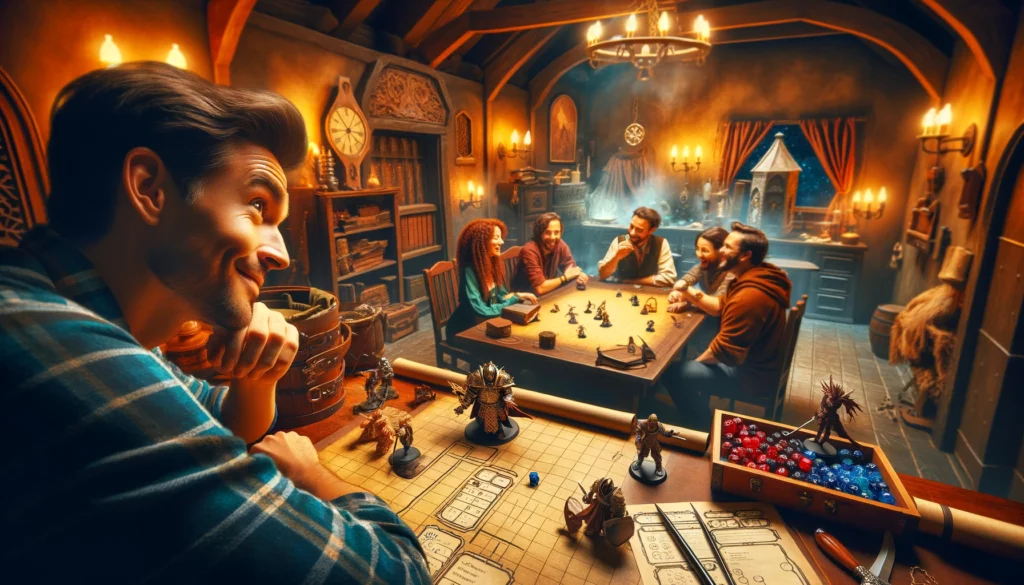
Why? Because their output is (partially) a result of your input. Paying attention to the output means you can then adjust the input, watch the result again, and tweak the input again. This is also why several of the earlier rules are focused on keeping things as simple as possible for you. You want to save as much headspace during the session itself as possible. You’re gonna be running the game, perhaps using some tools to help you out. Role playing, combat encounters, pacing, skill checks; you’re constantly busy. While doing this, keep other distractions at a minimum so you can focus on what you’re players are doing.
What to watch for
Look out for telltale signs. Are they leaning forward? And are they paying attention to the game? Do they try to get their character involved? Are they afraid their character might die during combat? Or are they using their phones a lot? Are they stacking dice? Are their minds wandering elsewhere?
You’ll want to look for these signs, in the first place to receive them as feedback. But you’ll also want to use it as a way of getting them back into the game. Whenever a player is less engaged, find a way to pull their characters into the current situation, even if only passively by having an NPC glancing at them. Juggling this as well as all the other things isn’t a small task, which is why you don’t want to overcomplicate the session with minute worldbuilding or other matters.
The reward of being a DM
But in the end, when you’ve created a great encounter and the players are fully engrossed in a moment of storytelling, nothing will beat that sense of accomplishment. I’ve had several of those moments, like ending the first campaign, or creating a custom monster that the players had to ‘solve’ like a combat-puzzle. Yes, it will take some effort to reach those moments, probably more than some DMs will let on. But once you’ve achieved it, you’ll realize there are few feelings like it.

